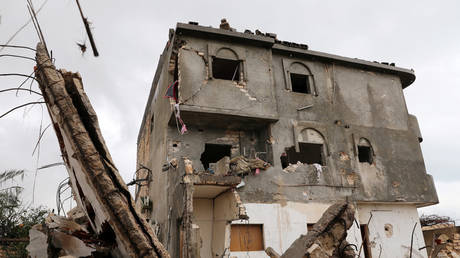
The Libyan Political Dialogue Forum (LPDF) overseen by the UN has elected an interim prime minister and three-member Presidency Council to lead the war-ravaged country until elections at the end of this year.
The forum’s 74 delegates voted in Mohammed al-Menfi, who is supported in the country’s east, to lead the Council, while Abdulhamid Dbeibeh, who has western Libyan support, was chosen as prime minister.
The pair emerged ahead from a list of four leadership candidates, which included the current parliamentary chief Aguila Saleh and interior minister Fathi Bashagha.
The vote was overseen by the UN secretary-general’s acting special representative for Libya, Stephanie Williams, who described the interim government’s selection as an “historic moment.”
Since 2014, Libya has had two governments: the Government of National Accord (GNA), based in the country’s western capital Tripoli and the Benghazi-based Libyan National Army (LNA) in the east, led by Khalifa Haftar.
Both governments are backed by militias and a number of foreign powers, with the UN, Turkey and the US among those supporting the GNA. Russia, Egypt and the United Arab Emirates have backed the LNA.
Oil-rich Libya was first thrust into civil war in 2011 as forces loyal to Colonel Muammar Gaddafi’s government fought against other foreign-backed groups.
The US-led NATO bombing campaign that year ultimately led to Gaddafi being overthrown, and he was captured and killed by forces of the National Transitional Council – Libya’s interim government during the ensuing civil war.
Violent conflict between forces of the GNA and LNA has continued for years, with negotiations between the two sides breaking down.
A truce was agreed in November and the two sides have since settled on a framework to hold elections on December 24.
Like this story? Share it with a friend!




